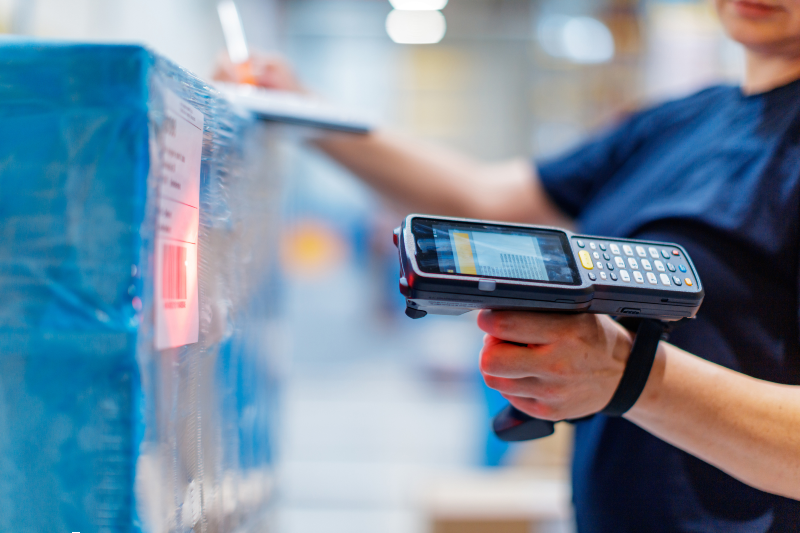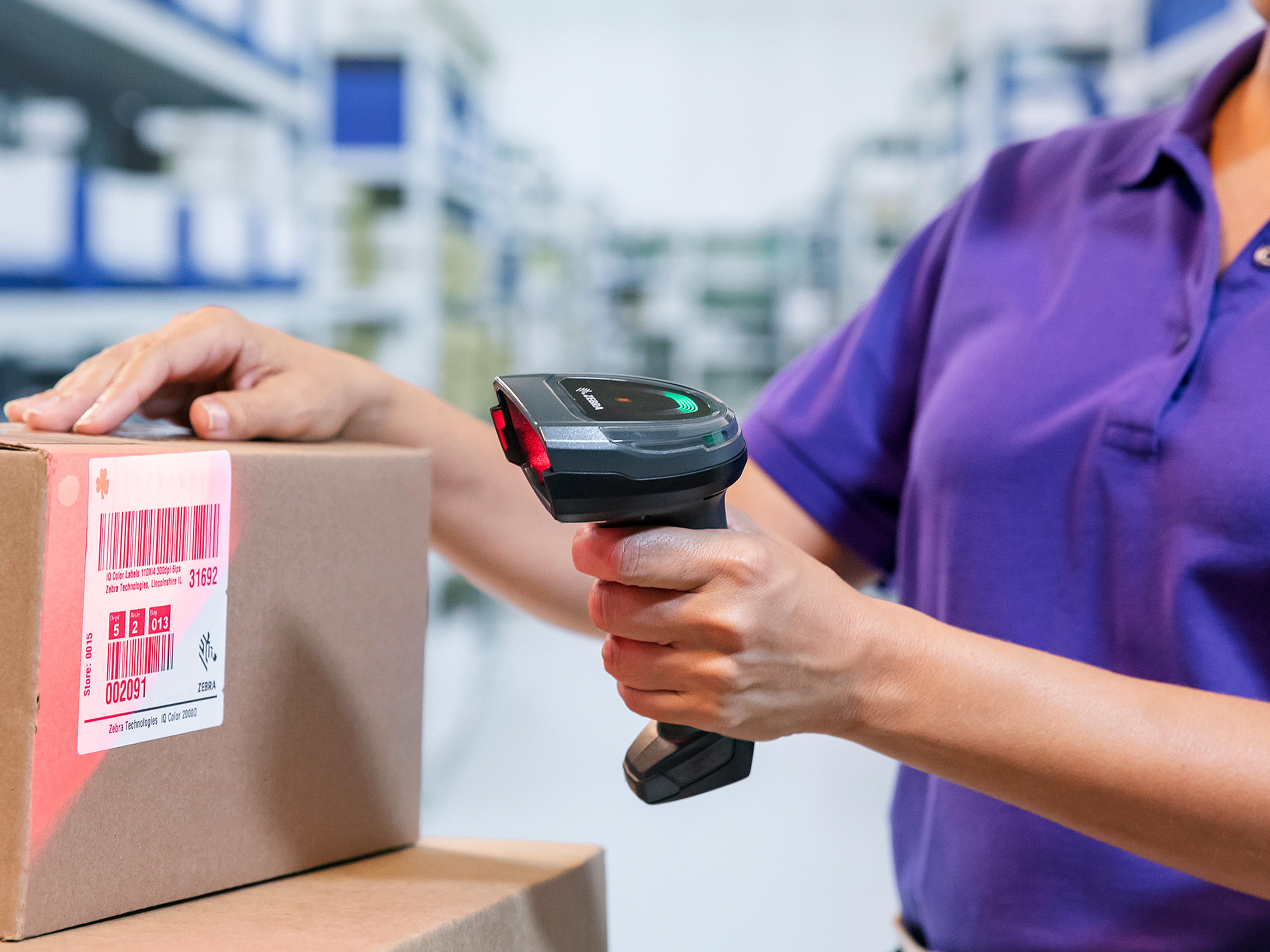Lightweight Barcodes Scanners for Simple Scanning
Lightweight Barcodes Scanners for Simple Scanning
Blog Article
Selecting the Right Barcode Scanner for Your Organization Demands
Choosing the appropriate barcode scanner for your organization requires a nuanced understanding of your details operational requirements and ecological problems. Variables such as scanner type, rate, and compatibility with existing systems play a crucial function in determining the appropriate choice.
Understanding Barcode Scanner Kind
When it concerns selecting a barcode scanner, recognizing the different types offered is vital for meeting details business requirements. Barcode scanners can be classified right into several types, each made for various applications and settings.
Handheld scanners are one of the most common, using transportability and ease of usage, making them ideal for retail and inventory management. They generally connect through USB or Bluetooth, supplying versatility in operation. Fixed-mount scanners, on the other hand, are made for high-volume scanning applications, typically located in setting up lines or checkout counters. These scanners are installed in a stationary position, enabling for rapid scanning of multiple products one by one.
An additional type is the mobile computer, which integrates scanning capacities with computing power. These devices are excellent for field operations or storage facility administration, making it possible for data collection and real-time inventory tracking. Furthermore, there are commercial scanners that are developed to withstand extreme settings, such as extreme temperatures or direct exposure to dust and wetness.

Secret Attributes to Consider
What necessary attributes should businesses prioritize when choosing a barcode scanner? Most importantly, scanning rate is critical, as faster scanners improve functional efficiency, particularly in high-volume atmospheres. The scanner's capability to review various barcode layouts is additionally crucial; ensure it supports preferred kinds like QR codes, UPC, and Code 128 to fit varied stock products.
Sturdiness is another vital attribute, especially for organizations in tough settings. Seek models that are developed to withstand decreases, dust, and dampness. Furthermore, take into consideration the connection alternatives readily available; whether you like USB, Bluetooth, or Wi-Fi, the appropriate connection can improve combination with existing systems.

Examining Your Business Environment
To effectively choose a barcode scanner, organizations should analyze their particular functional atmosphere. This assessment includes examining the physical format of the office, the nature of the items being checked, and the normal conditions under which scanning takes place. As an example, a retail setting may need portable scanners that can promptly refine deals at the check out, while a storehouse setup could take advantage of ruggedized scanners created to sustain harsher problems.
In addition, take into consideration the quantity of scanning needed. i thought about this High-throughput environments might necessitate innovative scanning innovations, such as fixed-position scanners or smart phones that can operate efficiently in fast-paced circumstances. The combination capabilities with existing stock administration systems also play a crucial duty; guarantee the selected scanner can effortlessly attach with software program platforms being used.
A scanner that meets existing needs might not be sufficient as organization expands. By extensively assessing these factors, organizations can select a barcode scanner that not just fulfills immediate requirements however also supports lasting functional performance and flexibility. barcodes scanners.
Budgeting for Your Scanner
Having examined the operational environment and determined the certain requirements for a barcode scanner, the following action involves cautious budgeting to guarantee a wise financial investment. Establishing a spending plan starts with determining the total expenses associated with the scanner, including first purchase cost, functional costs, and potential upkeep costs.
When choosing a barcode scanner, think about the variety of readily available choices, from portable tools to fixed-position scanners, as rates can vary dramatically. It is vital to balance expense with functionality; choosing an extra budget-friendly version may cause enhanced functional inefficiencies if it does not meet your service needs.
In enhancement to the hardware, consider prices related to software application, training, and possible upgrades. While it may be alluring to lessen ahead of time expenditure, purchasing a top quality scanner that aligns with your functional requirements can yield lasting cost savings with boosted performance and minimized downtime.
Last but not least, consider the overall cost of possession, which encompasses the scanner's life expectancy and prospective resale value. By carefully preparing this contact form your budget, you can ensure that your financial investment in a barcode scanner will certainly enhance your operational efficiency and financial efficiency.
Integration With Existing Equipment
Integrating a barcode scanner with your existing systems is vital for optimizing its efficiency and making sure smooth procedures. barcodes scanners. A well-integrated scanner improves process efficiency, decreases mistakes, and increases information processing. When choosing a barcode scanner, consider compatibility with your present software program and equipment infrastructure, including your supply management systems, point-of-sale (POS) systems, and business source planning (ERP) remedies
Assess whether the scanner utilizes conventional procedures such as USB, Bluetooth, or Wi-Fi, which can promote easy combination. Furthermore, analyze whether the scanner's software uses APIs or SDKs that enable for personalization and assimilation with exclusive systems. This is especially important for companies with distinct functional needs.
As your service grows, your systems need to be able to accommodate extra scanners and take care of boosted data quantities without significant reconfiguration. Inevitably, spending in a barcode scanner that effortlessly integrates with your existing systems will certainly produce long-lasting benefits, boosting precision, efficiency, and overall productivity within your operations.

Conclusion
In conclusion, choosing an appropriate barcode scanner necessitates a detailed examination of different elements, consisting of scanner kinds, essential attributes, and the particular business atmosphere. Appropriate budgeting for both acquisition and functional prices is wikipedia reference vital, along with guaranteeing compatibility with existing systems. By thoroughly thinking about these aspects, companies can enhance effectiveness and performance, ultimately leading to improved operational results. The ideal barcode scanner acts as a vital tool in enhancing processes and helping with reliable supply management.
Report this page